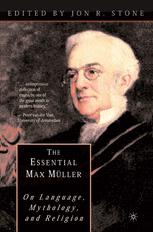

Most ebook files are in PDF format, so you can easily read them using various software such as Foxit Reader or directly on the Google Chrome browser.
Some ebook files are released by publishers in other formats such as .awz, .mobi, .epub, .fb2, etc. You may need to install specific software to read these formats on mobile/PC, such as Calibre.
Please read the tutorial at this link: https://ebookbell.com/faq
We offer FREE conversion to the popular formats you request; however, this may take some time. Therefore, right after payment, please email us, and we will try to provide the service as quickly as possible.
For some exceptional file formats or broken links (if any), please refrain from opening any disputes. Instead, email us first, and we will try to assist within a maximum of 6 hours.
EbookBell Team

4.3
78 reviewsMax Müller is often referred to as the 'father of Religious Studies', having himself coined the term 'science of religion' (or religionswissenschaft) in 1873. It was he who encouraged the comparative study of myth and ritual, and it was he who introduced the oft-quoted dictum: 'He who knows one [religion], knows none'. Though a German-born and German-educated philologist, he spent the greater part of his career at Oxford, becoming one of the most famous of the Victorian arm-chair scholars. Müller wrote extensively on Indian philosophy and Vedic religion, translated major sections of the Vedas, the Upanisads, and all of the Dhammapada, yet never visited India. To be sure, his work bears the stamp of late Nineteenth-Century sensibilities, but as artifacts of Victorian era scholarship, Müller's essays are helpful in reconstructing and comprehending the intellectual concerns of this highly enlightened though highly imperialistic age.